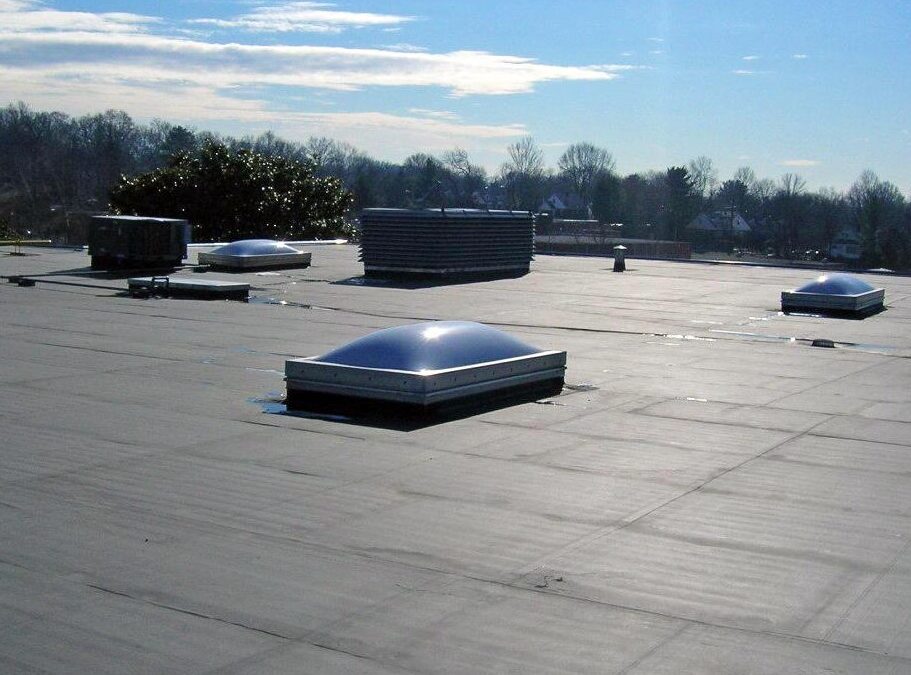Did you know the type of roof you choose for your business can actually save you money and headaches in the long run? Whether you’re dealing with harsh weather, energy bills, or maintenance costs, finding the right industrial roofing system is key to keeping your operations running smoothly.
From reliable flat roofing to cutting-edge eco-friendly designs, there’s no one-size-fits-all solution. Each option comes with its own benefits, depending on what your business needs. But how do you figure out which one is the best for your building?
In this blog, we’ll explore the types of industrial roofing that are out there and help you make a smart choice for your business. Stick around—you might just find the effective roofing solution you’ve been looking for!
What Makes Industrial Roofing Different from Residential Roofing?
At first glance, a roof might seem like just a roof, but the needs of a home and a large industrial building are worlds apart. Industrial roofing is designed to handle bigger spaces, heavier loads, and more complex demands compared to residential roofs.
For starters, industrial roofing often uses materials like metal, TPO, or EPDM, which are built to withstand harsh weather and wear over time. These materials are chosen for their durability and low maintenance, which are critical for businesses. On the other hand, residential roofs typically use materials like asphalt shingles, focusing more on style and curb appeal.
Another big difference is structure. Many industrial buildings use flat roofing because it’s easier to install and maintain over wide spaces. Flat roofs also allow businesses to maximize the use of rooftop areas for things like HVAC systems or solar panels. In contrast, residential roofs often have steeper slopes for better water drainage and a classic look.
However, tepid residential construction activity has translated to volatile demand for roofing work, making the industrial sector a more stable area for contractors. Large-scale projects, like factories and warehouses, often provide a consistent need for specialized roofing systems, even when housing markets slow down.
Lastly, the scale of roofing systems in industrial settings demands a higher level of expertise. A small leak in a home might be a quick fix, but in a warehouse or factory, it can disrupt operations and lead to costly repairs. That’s why choosing effective roofing solutions for industrial projects is not just a preference—it’s a necessity.
In short, while residential and industrial roofs both serve the same basic purpose, the design, materials, and functionality are tailored to meet very different needs.
7 Types of Industrial Roofing Systems
When it comes to industrial roofing, there’s no one-size-fits-all solution. Each type of roofing system offers unique benefits, depending on your business’s needs. From durability and energy efficiency to ease of maintenance, the right roof can make a significant impact on your operations and costs. Let’s dive into seven popular types of roofing systems that dominate the industrial sector.
1. Built-Up Roofing (BUR)
Built-up roofing, commonly referred to as BUR, has been a trusted choice for decades, especially for flat roofing applications. It’s made by layering asphalt, fabric, and gravel to create a durable, weather-resistant surface. BUR is known for its reliability, offering excellent protection against heavy rain and extreme heat. Its multiple layers also provide insulation, which can help regulate building temperatures, making it an affordable option for industrial properties that prioritize durability and longevity.
2. Modified Bitumen Roofing
Modified bitumen roofing is an upgraded version of BUR, designed to be more flexible and durable. It combines asphalt with polymer-based materials, which makes it resistant to cracking, tearing, and harsh weather conditions. This system works well for industrial properties that experience heavy foot traffic, like warehouses and factories, because of its added strength. Plus, its reflective coating can also reduce heat absorption, improving energy efficiency for buildings in warmer climates.
3. Metal Roofing
Metal roofing is a top contender for industrial roofing, offering an unmatched lifespan of up to 50 years or more. Available in materials like aluminum, steel, and copper, metal roofs are highly resistant to wind, fire, and corrosion. They’re also incredibly lightweight, which reduces the stress on a building’s structure. What’s more, the reflective properties of metal roofing help regulate indoor temperatures, saving on energy costs. Businesses aiming for sustainability will also appreciate that metal roofing is recyclable, making it an eco-friendly and cost-effective choice.
4. Thermoplastic Polyolefin (TPO) Roofing
TPO roofing is gaining popularity in industrial roofing due to its energy-saving properties. This single-ply membrane has a white reflective surface that minimizes heat absorption, reducing cooling costs for large buildings. TPO is also resistant to UV rays, chemicals, and bacterial growth, making it ideal for industries like food processing and healthcare. On top of that, TPO roofs are lightweight and easy to install, making them a favorite among contractors looking for quick, effective roofing solutions.
5. Ethylene Propylene Diene Monomer (EPDM) Roofing
Often called “rubber roofing,” EPDM is one of the most cost-effective options for flat roofing systems. Its black membrane is highly durable, and flexible, and can withstand extreme temperature changes, from freezing winters to scorching summers. EPDM is resistant to leaks and cracks, making it a reliable option for industrial properties. This type of roofing also requires minimal maintenance, which can save businesses time and money in the long term.
6. Green Roofing
Green roofing systems are becoming increasingly popular as businesses move toward eco-friendly practices. These roofs involve layers of vegetation planted over waterproof membranes, creating a living roof. Green roofs offer multiple benefits: they provide natural insulation, reduce stormwater runoff, improve air quality, and even create usable green spaces. While the initial investment may be higher, the long-term savings in energy costs and the environmental benefits make green roofing a sustainable choice for many industrial properties.
7. Spray Foam Roofing
Spray foam roofing is a modern and innovative option for businesses seeking a seamless, protective layer. It begins as a liquid that expands into a foam, filling cracks and gaps to create a watertight seal. This system provides excellent insulation, improving energy efficiency by maintaining consistent indoor temperatures. Spray foam roofs are lightweight yet durable, requiring minimal maintenance while offering long-lasting protection against leaks and damage. For industrial spaces with unique shapes or challenges, spray foam roofing is often a go-to solution.
Each of these roofing systems has its strengths and is tailored to different industrial needs. Whether you’re prioritizing longevity, energy efficiency, or sustainability, selecting the right industrial roofing can make a big difference for your business. By understanding the benefits of each type, you’ll be well-equipped to make an informed decision that supports your operational goals.
Key Considerations When Choosing Industrial Roofing
Selecting the right industrial roofing has impacted your business for years. It’s not just about aesthetics—your roof must meet your building’s unique demands. Here’s what to consider:
- Budget vs. Long-Term Costs: Durable materials like metal or TPO cost more upfront but save on maintenance. Budget-friendly options like EPDM and BUR are good for tighter budgets.
- Building Design: Choose a system that fits your structure. Flat roofing suits warehouses, while specific needs like HVAC systems may require tailored solutions.
- Climate: In wet climates, materials like BUR and metal are best. In hot areas, reflective options like TPO lower cooling costs.
- Energy Efficiency: Systems like TPO or green roofs reduce energy bills by improving insulation, and cutting heating and cooling expenses.
- Maintenance: Minimal upkeep systems, like EPDM, save time, while green roofs may require more care.
- Durability: Long-lasting materials like metal or modified bitumen reduce the need for frequent replacements.
- Industry Needs: Specific industries may need tailored materials—TPO for chemical resistance or green roofs for sustainability.
To understand the unique challenges of commercial roofing, especially in multi-story buildings, check out Top Challenges of Commercial Roofing in Vancouver: 5 Essential Considerations for Multi-Story Buildings. This insight can guide your decision-making and ensure your roof meets both practical and regulatory demands.
Carefully evaluating these factors ensures you select an effective roofing solution that balances cost, durability, and energy efficiency for your business.
Benefits of Professional Installation for Industrial Roofing
Hiring professionals for your industrial roofing project ensures quality, efficiency, and peace of mind. Here’s why it’s worth it:
1. Expert Knowledge
Professionals specialize in installing roofing systems, ensuring precision and durability with materials like TPO, EPDM, and metal.
2. Code Compliance
They handle strict industrial regulations, saving you from costly fines and ensuring your roof meets legal standards.
3. High-Quality Materials
Access to premium materials ensures long-lasting and effective results tailored to your building’s needs.
4. Safety First
Experienced roofers follow strict safety protocols, minimizing risks during the installation process.
5. Warranty and Guarantees
Professionals offer warranties, covering potential issues and protecting your investment.
6. Cost-Effective
Proper installation reduces future repair costs and extends your roof’s lifespan, making it an effective roofing solution.
7. Timely Completion
Experienced teams work efficiently, minimizing disruptions to your business operations.
With professional installation, your industrial roofing will be durable, safe, and built to last, ensuring long-term value for your business.
CONCLUSION:
Choosing the right industrial roofing isn’t just about covering your building—it’s about protecting your business for the long haul. From durable flat roofing to eco-friendly green roofs, each option has its own benefits, and the key is finding what works best for your needs.
Think about your budget, the design of your building, and how the local climate affects your roof’s performance. The right roofing system can save you money on energy bills, reduce maintenance headaches, and last for years with the right care.
Don’t leave such an important decision to chance. Work with a professional who understands the demands of industrial roofing and can guide you to the most effective roofing solution for your property. A little planning now can save you big in the future!

